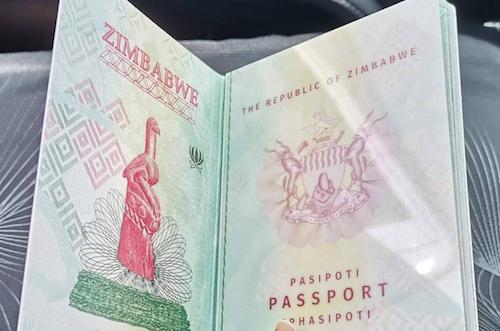News / National
High passport fees may hinder Zimbabwe's remittance flows
18 Oct 2024 at 11:30hrs |
0 Views

The Zimbabwe Banks and Allied Workers Union (Zibawu) has raised concerns that the country's high passport fees could significantly impede remittance flows by restricting citizens' migration opportunities. With passport costs reaching at least US$120, Zimbabwe has some of the highest passport fees in the region.
During a breakfast meeting organized by the Zimbabwe Economic Society, Zibawu Secretary General Peter Mutasa emphasized the need for affordable travel documentation to enable Zimbabweans to seek better economic opportunities abroad. "If you are in South Africa, you get a passport for US$34. In Zambia, it costs US$19; in Namibia, it's $22; and in Mozambique, it's $37. Yet, if you were born in Zimbabwe, you have to fork out between US$150 and US$250," Mutasa stated.
He questioned the government's commitment to regional integration and competitiveness, arguing that the exorbitant passport fees effectively "sanction" Zimbabwe's own citizens by limiting their ability to move freely. "Are we really serious that we want to integrate into Africa and compete globally?" he asked, highlighting that approximately 25% of the country's foreign receipts come from diaspora remittances.
Mutasa pointed out that reducing passport fees could attract much-needed foreign currency through increased remittance inflows. "The World Migration Report indicated that remittances have outpaced foreign direct investment and official development assistance. It's perplexing that a country desperate for foreign receipts would impose such restrictions on its people, making it difficult for them to access opportunities abroad," he said.
In addition to passport fees, Mutasa criticized government policies that complicate business operations, specifically the regulations that limit individuals from carrying more than US$2,000 out of the country. "We are sustained by people who cross into Mozambique, South Africa, and Botswana to trade. These restrictions only serve to further strain our economy," he added.
As Zimbabwe continues to grapple with economic challenges, the call for reforming passport fees and travel policies highlights the urgent need for the government to create an environment that fosters mobility and access to foreign currency, vital for sustaining livelihoods in the country.
During a breakfast meeting organized by the Zimbabwe Economic Society, Zibawu Secretary General Peter Mutasa emphasized the need for affordable travel documentation to enable Zimbabweans to seek better economic opportunities abroad. "If you are in South Africa, you get a passport for US$34. In Zambia, it costs US$19; in Namibia, it's $22; and in Mozambique, it's $37. Yet, if you were born in Zimbabwe, you have to fork out between US$150 and US$250," Mutasa stated.
He questioned the government's commitment to regional integration and competitiveness, arguing that the exorbitant passport fees effectively "sanction" Zimbabwe's own citizens by limiting their ability to move freely. "Are we really serious that we want to integrate into Africa and compete globally?" he asked, highlighting that approximately 25% of the country's foreign receipts come from diaspora remittances.
In addition to passport fees, Mutasa criticized government policies that complicate business operations, specifically the regulations that limit individuals from carrying more than US$2,000 out of the country. "We are sustained by people who cross into Mozambique, South Africa, and Botswana to trade. These restrictions only serve to further strain our economy," he added.
As Zimbabwe continues to grapple with economic challenges, the call for reforming passport fees and travel policies highlights the urgent need for the government to create an environment that fosters mobility and access to foreign currency, vital for sustaining livelihoods in the country.
Source - the independent
Join the discussion
Loading comments…





























